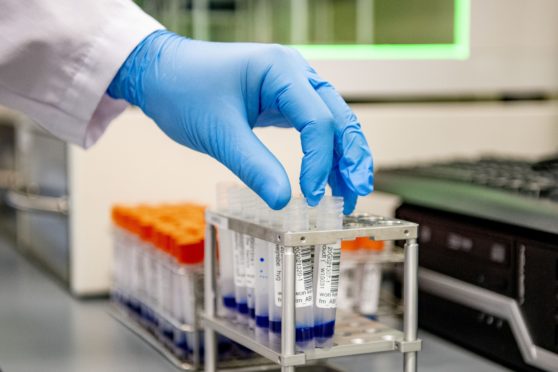The total number of coronavirus cases in Scotland has reached 5,590 as a further 15 cases have been confirmed in the north and north-east in the past 24 hours.
There are 10 new cases in Grampian, taking its total to 261, while the total number of cases in the Highlands has risen by four to 148.
Shetland’s case total remains at 43, Orkney has one additional case and a total of five and the Western Isles’ total cases remain at five.
There are 13 people in intensive care with confirmed or suspected Covid-19 in Grampian, seven in the Highlands and fewer than five each in Shetland, Orkney and the Western Isles.
A total of 542 people who tested positive for coronavirus in Scotland have now died.
Update on #coronavirus testing
As of 2pm today 29,903 Scottish tests have concluded
24,313 confirmed negative
5,590 positive542 patients who tested positive have sadly died.
Our latest update ➡️ https://t.co/kZjGNz2EDe
Health advice ➡️ https://t.co/l7rqArB6Qu#COVIDー19 pic.twitter.com/UBZ7mYDBOi— Scottish Government (@scotgov) April 11, 2020
Earlier today, a public health expert urged the Scottish Government to set out how it plans to ease the coronavirus lockdown, but warned that life may never return to normal after the pandemic.
First Minister Nicola Sturgeon has said it is too early to start planning how restrictions will be lifted, but Professor Linda Bauld, from Edinburgh University, said it should be discussed openly “to alleviate the pressure that people are feeling”.
The behavioural scientist echoed warnings from the First Minister and the World Health Organisation against prematurely lifting the measures, but said the Government should talk about plans to give people hope the lockdown will end.
Prof Bauld said being forced to remain at home unable to see family and friends, as well as a deluge of negatives stories in the news and on social media, were taking a toll on people’s mental health.
She also expressed concern that people were not seeking medical help and treatment, worried that it would put additional pressure on the NHS.
Asked on BBC Radio Scotland how the public were responding to the measures, Prof Bauld cited a study by King’s College London suggesting nine out of 10 people support the lockdown measures.
However, she suggested that rising numbers of people flouting social distancing rules “will ring alarm bells for the Government”.
Prof Bauld said that when the Government is ready, it should “begin to talk about what the options are for easing the restrictions if we feel the health service is not being completely overwhelmed – which it isn’t at the moment”.
She added: “I think we need to start talking about what measures might look like.
“We’re not going to go back to normal – I don’t think we’ll ever actually fully go back to normal – but some of the things just to alleviate the pressure that people are feeling now, particularly in a time like this when it’s a holiday and people are not able to see their families.”
At the Scottish Government’s daily briefing on Friday, Ms Sturgeon said it was too early for planning an “end game” for lifting the lockdown.
